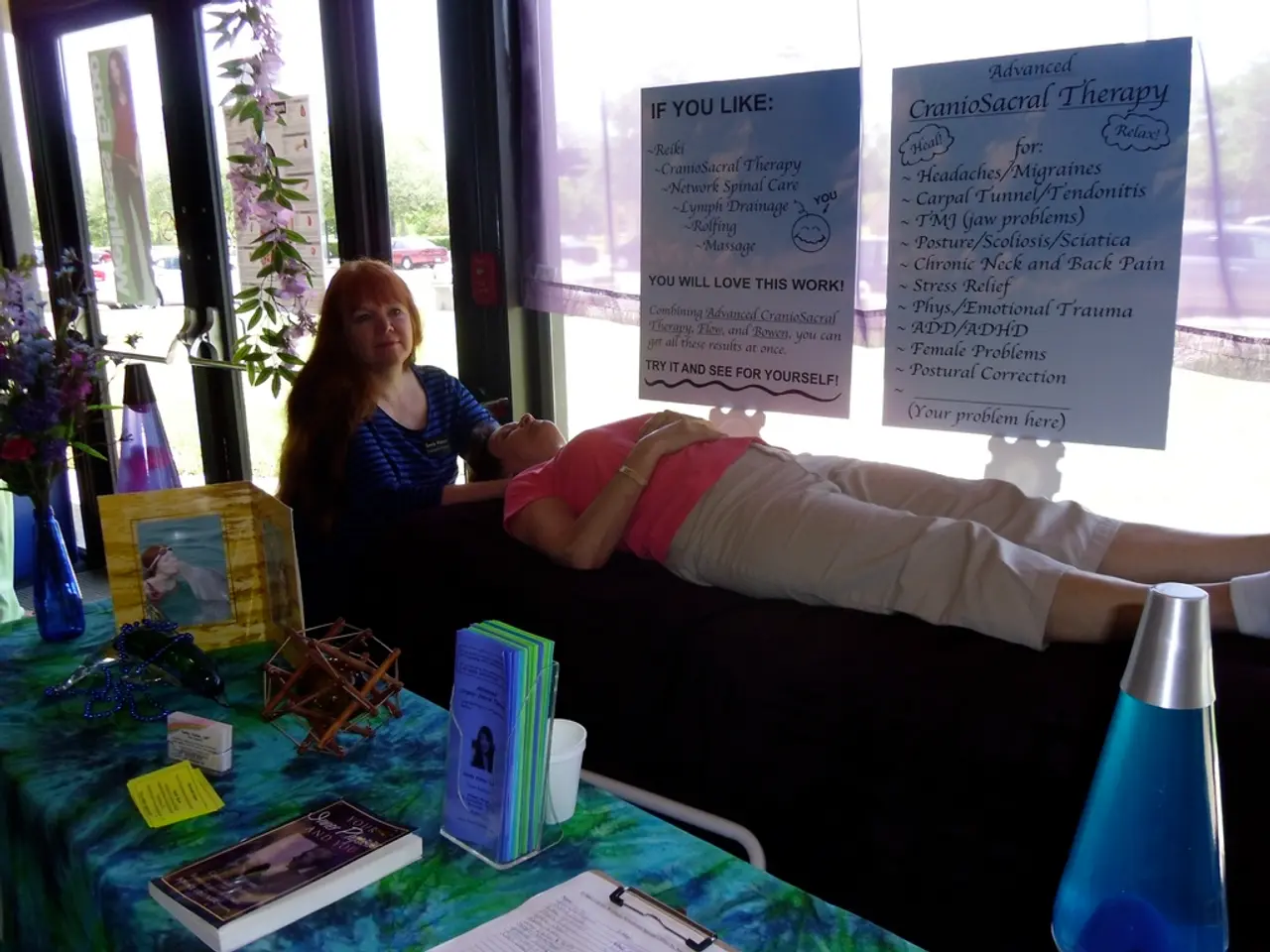Foot Discomfort in Patients? New Study Explores Potential Treatment for Cancer-Related Neuropathy in Feet
A groundbreaking study led by members of the Wilmot Cancer Institute has shown promising results in the use of Transcutaneous Electrical Nerve Stimulation (TENS) therapy for managing pain associated with chemotherapy-induced neuropathy in cancer patients.
The study, which involved 142 participants with an average age of 63, utilised a wireless, wearable device called Quell, manufactured by NeuroMetrix, a Massachusetts company. The device, controlled by an app, sits in a band on the leg, below the knee, with stimulation extending down toward the feet.
The high-frequency wave stimulation from the TENS device activates nerve cells, causing changes in nerves that block pain signals. According to the results, TENS therapy reduced sharp/shooting pain, hot/burning pain, and cramping in the legs and feet for the trial participants.
Over 90 percent of the participants completed daily symptom diaries and physical assessments, suggesting that it's feasible to accurately gauge patient experiences with TENS devices. The study's key goal was to determine if a larger, nationwide confirmatory clinical trial is possible, and results on that front were positive.
However, it's important to note that TENS therapy should be approached with caution. People with pacemakers and epilepsy should avoid TENS therapy, and individuals may develop skin reactions and abnormal sensations. These issues can be managed by reducing the intensity of the nerve stimulation and the time of use.
Cancer patients with chronic neuropathy pain are advised to consult their oncologist or other doctor before trying TENS therapy at home. The U.S. Food and Drug Administration has already approved the same TENS device for patients with fibromyalgia-related pain.
The results of the study were recently published in the Journal of Pain, and a larger trial will be conducted through the National Cancer Institute Community Oncology Research Program (NCORP), for which Wilmot serves as a national hub. The National Institutes of Health funded the study, and the study's lead researchers, Jennifer Gewandter and Nimish Mohile, hold prominent positions in various departments at the University of Rochester Medical Center.
Gewandter, an associate professor in the departments of Anesthesiology and Perioperative Medicine, Dentistry, and Neurosurgery, and Mohile, the Ann Aresty Camhi Professor of Neurology, and a professor of Oncology, disclosed that in the past Gewandter has received some compensation from NeuroMetrix for serving on its scientific advisory board and a small grant to investigate the effects of the TENS device on swelling.
Many patients prefer to avoid more drugs for neuropathy after receiving toxic cancer treatment. Neuropathy, which impacts up to 60 percent of people who are prescribed common chemotherapies, can be severe and debilitating, or intermittent, and often leads to impaired walking, balance issues, and lower quality of life.
For accurate and comprehensive findings, it would be best to consult the original research publication or contact the Wilmot Cancer Institute directly.
- The clinical study, conducted by the Wilmot Cancer Institute, has demonstrated potential in using Transcutaneous Electrical Nerve Stimulation (TENS) therapy for managing pain from chemotherapy-induced neuropathy in cancer patients.
- Science and health and wellness sectors are keen on the study's findings, as it involves a wearable device called Quell, designed to help manage chronic medical conditions like pain associated with cancer and fibromyalgia.
- Fitness and exercise, mental health, and nutrition are areas that could benefit from further research in conjunction with TENS therapies and treatments, as they may contribute to overall patient well-being and symptom management.
- TENS therapy has shown promising results in reducing sharp/shooting pain, hot/burning pain, and cramping in the legs and feet, as observed in the clinical study, but it should be used with caution due to potential side effects such as skin reactions and abnormal sensations.
- Cancer patients experiencing chronic neuropathy pain should consult their healthcare providers before trying TENS therapy at home, and the National Cancer Institute is undertaking a larger confirmatory clinical trial through its Community Oncology Research Program to further explore the therapy's effectiveness.




